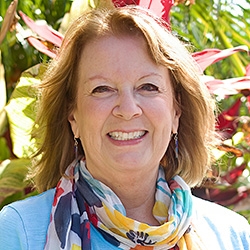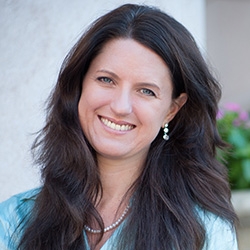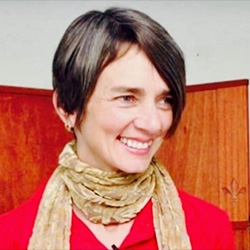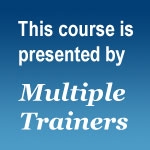

Search Results: attachment
-
Let go of control and tune in to your child’s needs in everyday parenting.
-
Ask the Trainer: Is a confidentiality agreement typically used in NVC practice groups?
-
One of the premises in NVC is that behind all behavior and expressions are Universal Human Needs as the deeper motivators. And one of the key distinctions in NVC is that between Needs and Strategies. Try Alan Rafael Seid's exercise called "Peeling the Layers of the Onion, " a process for uncovering these needs — the deeper motivations — that underlie words and behaviors we may find disturbing or puzzling.
-
Trainer Tip: Make a clear, conscious decision about what’s important to you, and then live from that place. This can support you to become less attached to being likeable or accepted, And less affected in a way you don't want, by others opinions of you and your choices. This can further support you to live in integrity.
-
Read this short Japanese parable that symbolically illustrates the outcomes of having a competitive mindset – in contrast to an interdependent, collaborative one where everyone wins. It’s a story that encapsulates part of the spirit of NVC.
-
Just as setting boundaries is beneficial to relationships, NOT setting boundaries can come at a big cost. Listen to Yvetter Erasmus share her experience with boundary setting.
-
Eric Bowers explains how needs and strategies correlate to different brain hemispheres, and how relaxing into our needs opens us to greater possibilities.
-
When feeling unworthy, powerless, or afraid, we can hear others' comments as criticism, rejection, demands, limits, or attacks. Practice self-compassion, release attachments, and ask “How can I stretch the boundaries of who I believe myself to be, in service of love?”. Try replacing love with a word that inspires you (e.g. freedom, thriving, etc). Note answers that arise later. Or explore the question with a trusted person or in a journal. Read on for examples.
-
-
Raj Gil offers tools and dialogue to help you respond to anger with awareness & care in the moment.
-
This chart helps translate words that imply blame into true feelings and unmet needs.
-
Interactive dialogue addresses common questions for new NVC facilitators and trainers.
-
Ask the Trainer: Can NVC transform group conflict? Trainer shares stories and answers the question.
-
Why is it so difficult to change our patterns even when we want to, even when we experience shame or despair about them? Arnina Kashtan offers some of the common pitfalls and concrete steps to overcome them in the future.
-
Practice "power with" parenting for babies to preschoolers with expert guidance from Ingrid.
-
Deepen your empathic presence with Raj and Mary, for those with basic understanding of NVC.
-
In this recorded telecourse, John Kinyon, world renowned CNVC Certified Trainer, offers an overview and practice with four elements of empathy – presence, understanding/meaning, need language and deepening into needs.
-
Strengthen empathy, goodwill, and authenticity at home, meeting life's challenges with grace.
-
Explore NVC as a spiritual practice through dynamic conversations on compassion and transformation.
-
Join CNVC Certified Trainer Arnina Kashtan as explores interdependence, autonomy, valuing self and others, and power-sharing in your relationships. Free yourself to honor your longing for community, belonging, and love.
Quick Links

Stay in Touch!
We value your privacy, won't share your email address and you can easily unsubscribe any time.



















